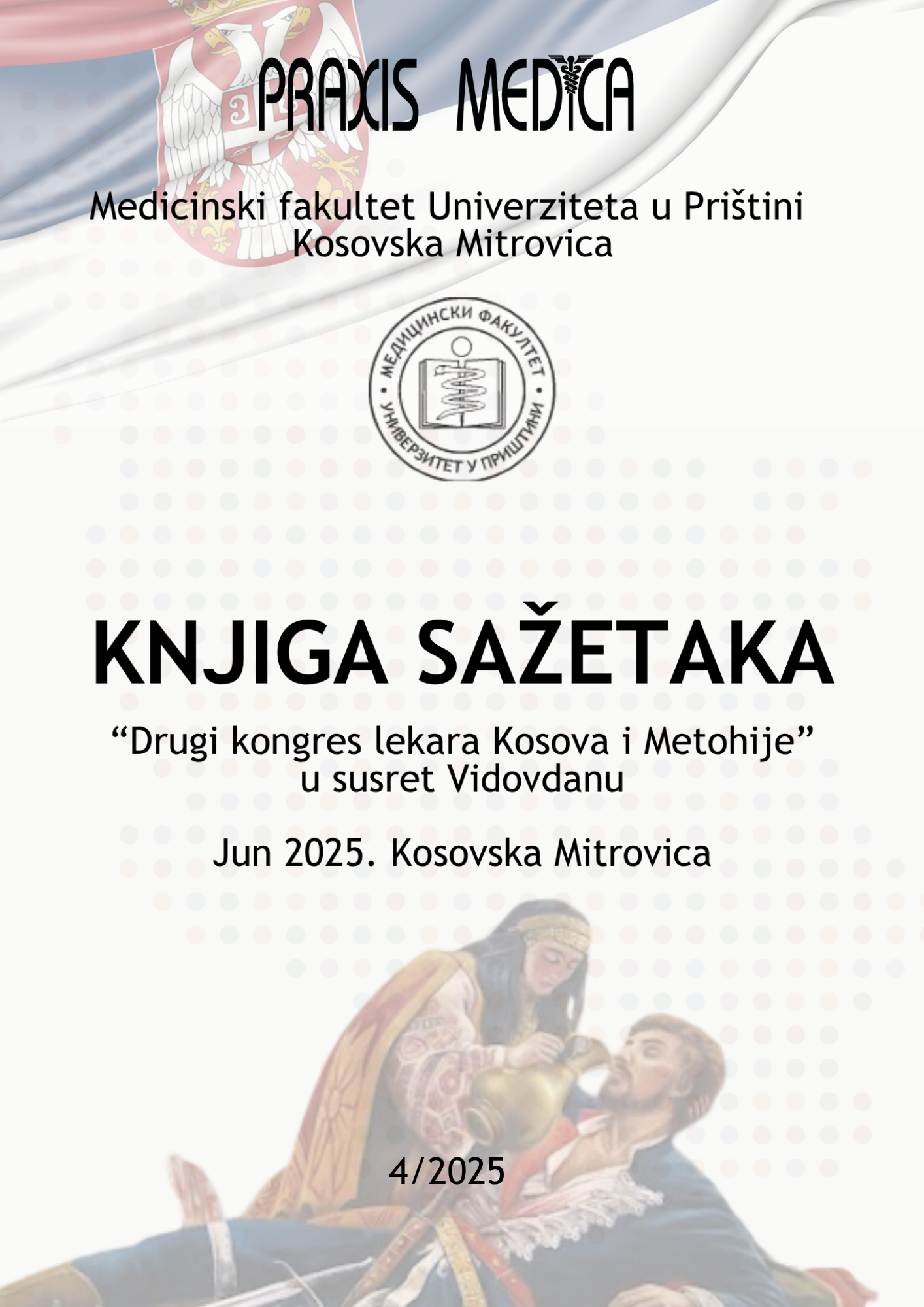
More articles from Volume 39, Issue 1, 2011
ANTIOXIDANT ROLE OF ASCORBIC ACID IN OXIDATIVE STRESS INDUCED BY STERENOUS EXERCISE
MORPHOMETRIC ANALYSIS GANGLIONIC STRUCTURES OF MYENTERIC NERVOUS PLEXUS FORE WALL OF HUMAN STOMACH DURING PROCESS OF AGING
THE INTERACTIONS OF BIOELEMENTS WITH INCREASED INTAKE OF COPPER
UTILIZATION OF ANTIBIOTICS FOR SYSTEMIC USE AT THE SURGICAL CLINIC OF THE CHC - PRISTINA IN GRACANICA
THE IMPORTANCE OF MEASUREMENT OF MYELOPEROXIDASE ACTIVITY IN ACUTE CORONARY SYNDROME
Citations

0
METABOLIC REGULATION OF DIABETES AND FUNGAL SKIN INFECTIONS
Dermatology Clinic, Medical faculty Priština , Kosovska Mitrovica , Kosovo*
Clinic of Internal Diseases, Medical faculty Priština , Kosovska Mitrovica , Kosovo*
Institute of Medical Statistics and Informatics, Medical faculty , Belgrade , Serbia
Dermatology Clinic, Medical faculty Priština , Kosovska Mitrovica , Kosovo*
Dermatology Clinic, Medical faculty Priština , Kosovska Mitrovica , Kosovo*
Dental Clinic, Medical faculty Priština , Kosovska Mitrovica , Kosovo*
Published: 01.01.2011.
Volume 39, Issue 1 (2011)
pp. 89-92;
Abstract
In diabetics fungal skin infections are reported to be related to greatly disturbed metabolism. In order to get better insight into the association between diabetes mellitus and fungal skin infections, we started our study with the aim to assess the effect of metabolic regulation on the incidence of fungal skin infections is diabetics. The obtained results of our study show that in patient with metabolically poorly regulated primary disease i.e. diabetes the incidence of the fungal skin infections is highest (36.0%), its incidence is lower in patients with metabolically satisfactorily regulated diabetes (29.5%) and lowest in those with well regulated diabetes (18.8%), witch is statistically significant difference (p=0.045).
Keywords
References
Citation
Copyright

This work is licensed under a Creative Commons Attribution-NonCommercial-ShareAlike 4.0 International License.
Article metrics
The statements, opinions and data contained in the journal are solely those of the individual authors and contributors and not of the publisher and the editor(s). We stay neutral with regard to jurisdictional claims in published maps and institutional affiliations.






